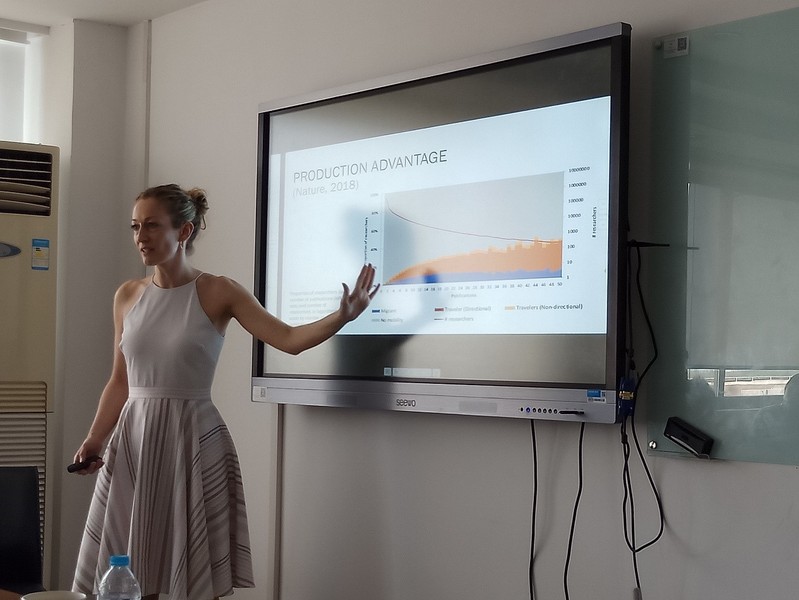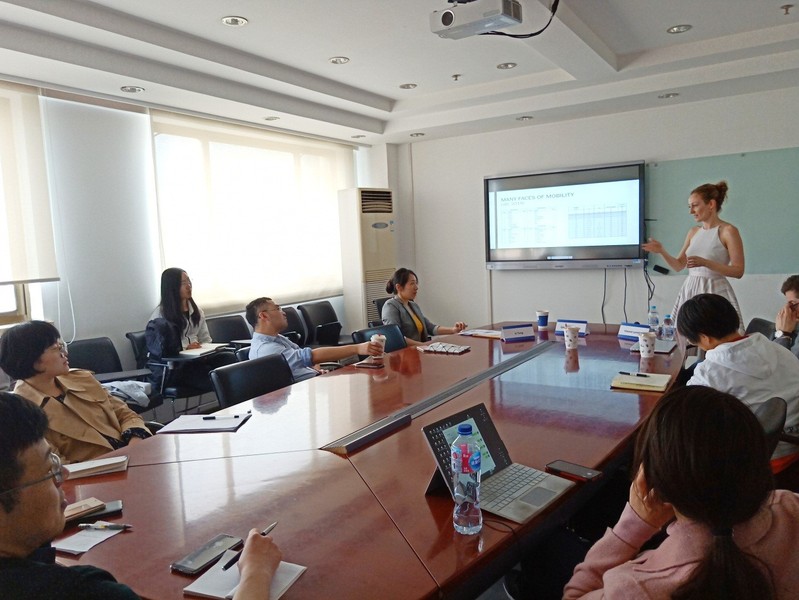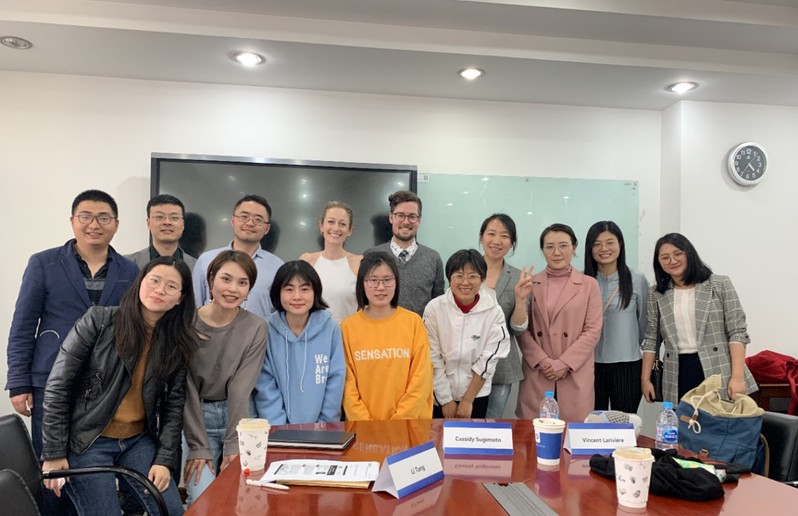Events



On 17th April, 2019, Fudan-LSE lecture series was jointly held by the Institute for Global Public Policy (IGPP) and School of International Relations & Public Affairs of Fudan University. Professor Cassidy R. Sugimoto, the Program Director for the Science of Science and Innovation Policy program at the National Science Foundation, delivered a lecture entitled Global Dynamic Scientometric Indicators.
This event was hosted by Professor Li Tang of School of International Relations & public affairs of Fudan University. Professor Tang started with a brief introduction to Cassidy. Cassidy is an associate professor of School of Informatics, Computing and Engineering at Indiana University Bloomington, the president of International Society for Scientometrics and Informetrics (ISSI), and currently serves as the Program Director for the Science of Science and Innovation Policy program at the National Science Foundation. Her research focuses on knowledge creation and diffusion, and talents’ mobility.

Cassidy provided a detailed introduction tothe state of art and policy implications of scientific mobility, collaboration, global leadership and specialization in the context of globalization. Her teams found that the new patterns of researchers' mobility have created a new space for the research on scientific collaboration and global leadership. The leading countries in the number of publications are those with stronger research abilities. Researchers across countries are more likely to cite publications produced by the authors from their home countries; self-citing behavior has been prominent for Chinese authors in recent years. The level of specialization in science varies across countries. For example, in the field of experimental physics, European countries and the US showed a higher level of specialization. In the field of tropical medicine, Africa, Southeast Asia and South America were more specialized than other countries. The above evidence suggests that the advancement of countries’ science and technology is related to geographical factors, and varies with the development of the economy. Cassidy wrapped up this event by noting that researchers need to rethink the concept of periphery countries and core countries in the era of big data. The global databases are essential for acquiring scientometric indicators around the world, and beneficial for making and evaluating S&T and innovation policies based on empirical evidence.

Researchers and students from School of International Relations & Public Affairs of Fudan University, Tongji University, East China Normal University and other universities attended this lecture.
